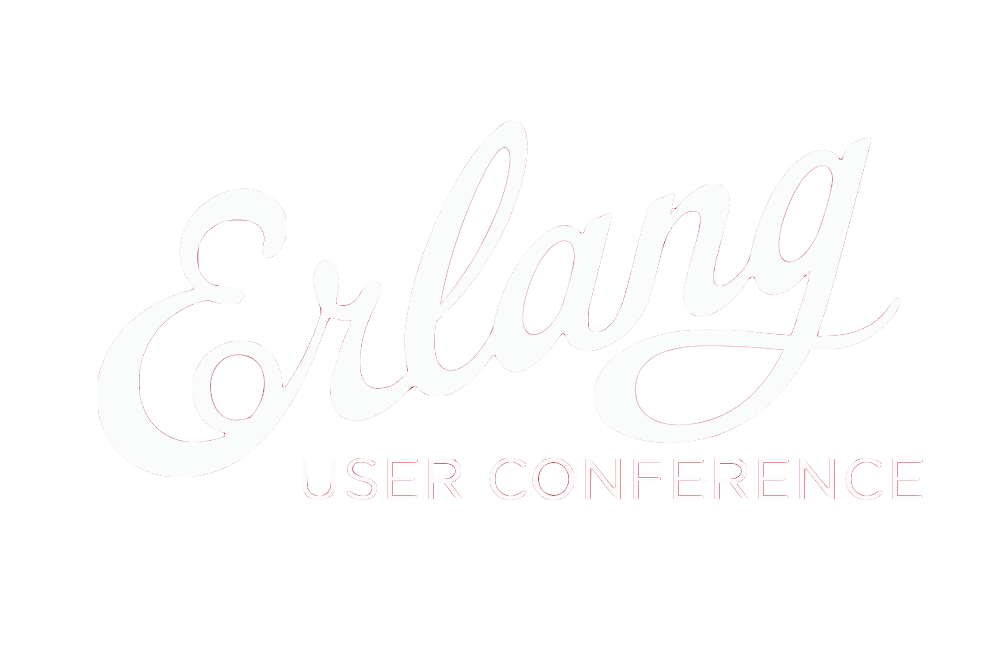Advanced Erlang Techniques 6 - 7 September
Trainer: Robert Virding
2 Days Course
Target Audience: Software Developers & Engineers
Prerequisites:
- Knowledge and experience of Erlang, at least equivalent to Basic Erlang or Complete Erlang courses.
- Knowledge of OTP is beneficial but not strictly necessary
- Experience with building and maintaining large systems.
Objectives:
- A better understanding of tools for building and maintaining systems
- Understand the basics of profiling and debugging of running systems
Course Outline:
This two-day course presents some more advanced tools for building and maintaining applications with Erlang. It also gives insight into the
- Parse Transforms
- Profiling
- Emulator Flags (BEAM introduction)
- Observer
- Tracing & Debugging:
- Trace BIFs & Match Specifications
- The
dbg Tool - Recon, Redbug
Phoenix Bootstrap 6-7 September
Trainer: Claudio Ortolina
2-day course
Target Audience: Software Developers and Engineers, with a focus on providing web-based services
Prerequisites:
- Good programming skills in another language such as Python, node.js, Ruby, or PHP
- Familiarity with building web services helpful (i.e. REST interfaces)
Objectives:
- How to use Phoenix for web apps and REST interfaces
- Basic/sequential Elixir
- Building, Testing, and Deploying
Course Outline
During the course, students will build an example Phoenix application in order to learn how to build, test, and deploy a website and REST service using this scalable high-performance web framework. The course contains the following topics:
● Using Mix
● Controllers, Views, Templates, Models (Ecto), and Routes
● Asset Management and static content
● Channels/
● Basic Elixir
● Elixir Shell
● Testing
● Debugging and Troubleshooting
● Operations and Maintenance
● Publishing Releases
Complete OTP 12 - 15 September
Trainer: Robert Virding
4 Days Course
Target Audience: Software Developers & Engineers
Prerequisites:
Complete Erlang or Basic Erlang, preferably followed by some practical experience
Objectives:
- Understand the design principles of OTP
- Understand OTP behaviours
- Understand OTP System Configuration
- Awareness of the available OTP applications
Course Outline:
The OTP course covers advanced Erlang features such as design patterns,
- Behaviours
- Generic Servers
- Finite State Machines
- Supervisors
- Event Handlers
- Applications
- Building Compliant Processes
- System Architectures Support Library
- System Principles & Release Handling
- Release Upgrade
Elixir/OTP Bootcamp 12-15 September
Trainer: Szymon Mentel
4-Day Course
Target Audience: Software Developers and Engineers, with a focus on backend services
Prerequisites:
- Good programming skills in another language such as Java, Perl, Python, node.js, or Ruby
- Familiarity with server-side software development helpful
Objectives:
- How to use Elixir for backend servers and REST interfaces
- Basic/Sequential Elixir
- Concurrent and Parallel programming
- Distributed Applications
- Building, Testing, and Deploying
Course Outline:
Students will start by learning the basics of the Elixir language. Following that, the course turns to concurrency and students will learn the details of writing parallel and concurrent Elixir applications and the underlying concurrency capabilities provided by BEAM (the Erlang virtual machine). The course shows the right way to write concurrent applications that will scale by using OTP Behaviours. At the completion of the courses, students will know how to build, test, and deploy a concurrent, distributed backend service applications. The course contains the following topics:
- Background Elixir/Erlang
- Basic Elixir
- Elixir Shell
- Sequential Elixir
- Concurrent Elixir
- BEAM (Erlang virtual machine) internals
- Process Design Patterns
- Process Error Handling
- Modules & Processes
- Data Structures (Maps. Structs, Records, Binaries)
- List comprehension
- Funs and High-Order Functions
- Macros & Language Features
- Code Upgrading
- Distributed Programming
- Behaviours
- Generic Servers
- Supervisors
- Phoenix for REST
- Using Mix
